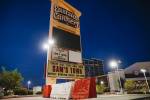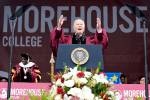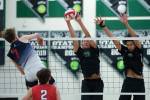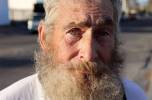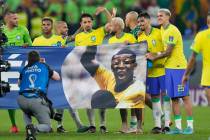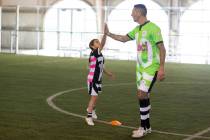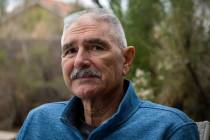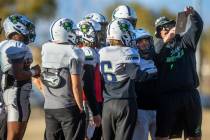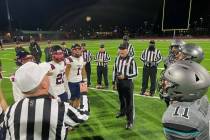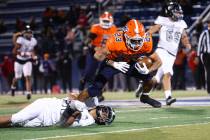Munich memories haven’t left Connolly
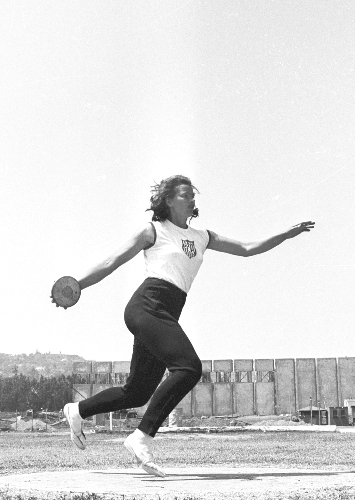
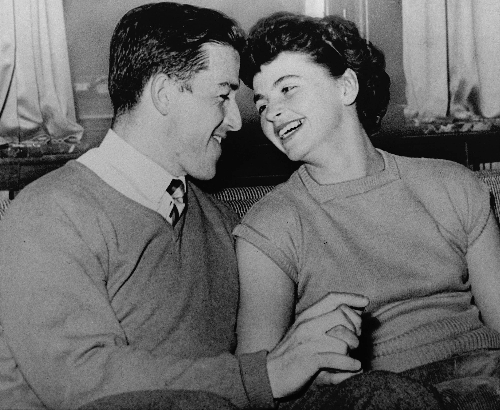
It was a little before 8 p.m. Friday when a telephone rang in Costa Mesa, Calif., near Newport Beach and the 405 Freeway. It rang one time, two times, three times, four times.
"Ah-low?"
This was the voice of Olga Connolly, a remarkable woman who participated in five Summer Olympics – Melbourne, Rome, Tokyo, Mexico City, Munich.
In 1956, at age 23, when she won the gold medal in the discus in Australia, she was Olga Fikotova of Czechoslovakia. Then she became Olga Connolly of the United States.
In Melbourne, she had met Harold Connolly, the gold medal-winning American hammer thrower. They fell in love and got married on March 27, 1957, in Old Town Square in Prague. It was supposed to be a secret wedding. There were 30,000 witnesses.
The Cold War romance of Olga Fikotova and Harold Connolly was such a big deal that Life magazine would publish photos of them for years. But Olga Fikotova was called a traitor in her communist homeland after she married Harold Connolly. She competed for the USA after that, finishing seventh in 1960 and sixth in 1968.
She embraced her new country. And her new country embraced her.
In 1972, she was the United States’ Olympic flag bearer. At Munich. In those Olympics.
By then, Harold and Olga Connolly had a 13-year-old son. Mark Connolly was an amateur boxer who would work as a pit boss at the Tropicana and the Palms. We spoke on Friday. He asked if I remembered Munich, those Olympics, when the Palestinian militants scaled the fence where the Israeli athletes were sleeping.
Did I remember the masked man on the balcony?
I was 15, a high school freshman. For the first time, I had a steady girlfriend. We were holding hands, in her grandmother’s apartment, when a bleary-eyed Jim McKay said they were all gone. Her grandmother was in the next room.
Mark Connolly said it was the first time he had heard the word "terrorism." And his mom was there, in the Olympic Village. Is she OK? And then Mom came home and everything was OK, because Mark was only 13.
Now he’s 53. And when officials in London said they would not honor the slain Israelis with a moment of silence during the opening ceremony to mark the 40-year anniversary of the massacre, Mark Connolly began to think about Munich, those games, when he was 13. He called the newspaper. He said his mom had carried the flag into the Olympic Stadium.
He gave me her number in California.
"I have a problem talking about that," Olga Connolly, who will be 80 in November, politely said.
I remember when the great marathon runner Frank Shorter, who won the gold medal in Munich, was in Las Vegas to drum up support for our local marathon. Shorter had a problem talking about Munich, too.
But then he did. And on Friday night, Olga Connolly did, too. For like 45 minutes. Maybe it’s cathartic, talking about it.
She had gone shopping in Munich when the news broke. And after the Israelis were all gone, a wreath of flowers was placed in front of Building 31.
The games would go on.
It all seemed a bit cold, Olga Connolly said. When she returned to the stadium, where only days before she had carried the flag, she wanted to hear Avery Brundage pay homage to the slain athletes. Instead, she said, the International Olympic Committee president mostly spoke about the problems in Rhodesia, and how they would not deter the Olympics, either. At least that is how it came across.
We should do something, she said of her fellow athletes. I should do something.
So she drafted a letter, all of three paragraphs, in English and in Czech and left it in the cafeteria for the athletes to sign. She still has a copy of the Czech version. She translated, over the telephone. It spoke mostly of the ideals and the spirit upon which the Olympics were founded. And how the athletes of 1972 still were committed to those ideals, and that spirit.
When she returned to the cafeteria, the letters were gone.
She wishes she had kept a diary. Then maybe it would be easier to explain exactly what she was feeling in 1972.
On the last day of Munich, her last day as an Olympic athlete, Olga Connolly thought she might win a bronze medal for the United States in the discus. She did not. She did not come close. She thought her heart still was in it. It was not.
She remembers leaving the Olympic Stadium with a competitor from Poland when she was approached by a man wearing a canary yellow blazer. It was Erich Segal, the Ivy League scholar and author of "Love Story," who loved the marathon and helped call Frank Shorter’s victory for ABC.
Segal took one of Connolly’s hands in his. Then he took the other one. She should take comfort, he said, that while her athleticism might have forsaken her, her humanity never wavered.
"I cried and cried and cried," she said.
Olga Connolly, this remarkable woman of nearly 80 who remains active in environmental matters and as a fitness instructor and is generally up on things, said that when the phone rang, she was on her way out the door, to watch the opening ceremony with her daughter. She taught me how to say "good night" in Czech – Dobrou noc!
She said she would be pulling for Amanda Bingson, "the Las Vegas girl from UNLV" in the hammer throw.
Las Vegas Review-Journal sports columnist Ron Kantowski can be reached at rkantowski@reviewjournal.com or 702-383-0352. Follow him on Twitter: @ronkantowski.




